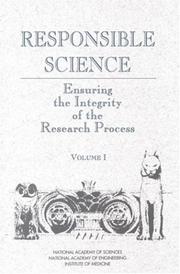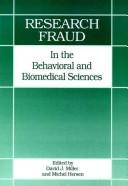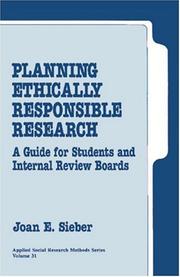| Listing 1 - 10 of 141 | << page >> |
Sort by
|
Book
ISBN: 9781526477866 9781526477859 1526477858 1526477866 Year: 2020 Publisher: Beverly Hills (Calif.) : Sage publications,
Abstract | Keywords | Export | Availability | Bookmark
 Loading...
Loading...Choose an application
- Reference Manager
- EndNote
- RefWorks (Direct export to RefWorks)
"This classic text offers a complete guide to carrying out ethical research with children and young people. It examines the ethical questions that arise at each stage of research, from planning to dissemination and impact. Packed with case studies from international and inter-disciplinary researchers, it offers advice for addressing the myriad ethical considerations present in research with young participants. In this second edition, the authors: Showcase best practice for approaching new issues like data protection Offer practical guidance for responding to recent global changes in ethics policy, practice and law Discuss the challenges and opportunities of digital research with children Priscilla Alderson is Professor Emerita of Childhood Studies at University College London Institute of Education. Virginia Morrow is a Visiting Professor at University College London Institute of Education and Research Associate, Young Lives, Department of International Development, University of Oxford"--


ISBN: 0309047315 9786610211579 1280211571 0309584515 9780309584517 Year: 1992 Publisher: Washington : National Academies Press,
Abstract | Keywords | Export | Availability | Bookmark
 Loading...
Loading...Choose an application
- Reference Manager
- EndNote
- RefWorks (Direct export to RefWorks)

ISBN: 0335210465 0335211003 9780335211005 9780335210466 9780335227860 0335227864 1280948027 9786610948024 Year: 2003 Publisher: Maidenhead Open university press
Abstract | Keywords | Export | Availability | Bookmark
 Loading...
Loading...Choose an application
- Reference Manager
- EndNote
- RefWorks (Direct export to RefWorks)
Intended for those doing educational research, this work considers what is distinctive about educational research in comparison with other research in the social sciences. It argues that it is the epistemological and moral purposes underlying the 'usefulness' and 'relevance' of educational research that matter.
Book
Year: 2015 Publisher: Tokyo: Maruzen Pub.,
Abstract | Keywords | Export | Availability | Bookmark
 Loading...
Loading...Choose an application
- Reference Manager
- EndNote
- RefWorks (Direct export to RefWorks)
Book
ISBN: 0826174507 9780826174505 Year: 1991 Publisher: New York (N.Y.) : Springer,
Abstract | Keywords | Export | Availability | Bookmark
 Loading...
Loading...Choose an application
- Reference Manager
- EndNote
- RefWorks (Direct export to RefWorks)
Longevity. --- Longevity --- Gerontology --- Aging. --- Aged. --- Ethics, Medical. --- Life Support Care. --- Research --- Moral and ethical aspects. --- Longevity - Research - Moral and ethical aspects. --- Gerontology - Research - Moral and ethical aspects.
Book
ISBN: 9781555816612 1555816614 Year: 2014 Publisher: Washington, D.C. ASM Press
Abstract | Keywords | Export | Availability | Bookmark
 Loading...
Loading...Choose an application
- Reference Manager
- EndNote
- RefWorks (Direct export to RefWorks)

ISBN: 0471520683 Year: 1992 Publisher: New York (N.Y.) Wiley
Abstract | Keywords | Export | Availability | Bookmark
 Loading...
Loading...Choose an application
- Reference Manager
- EndNote
- RefWorks (Direct export to RefWorks)
Fraud in science --- Fraude scientifique --- Wetenschappelijk bedrog --- Research --- Moral and ethical aspects --- Psychology --- Social sciences --- Medical sciences --- Research - Moral and ethical aspects. --- Fraud in science. --- Psychology - Research - Moral and ethical aspects. --- Social sciences - Research - Moral and ethical aspects. --- Medical sciences - Research - Moral and ethical aspects.

ISBN: 0803939639 Year: 1992 Volume: 31 Publisher: London Sage
Abstract | Keywords | Export | Availability | Bookmark
 Loading...
Loading...Choose an application
- Reference Manager
- EndNote
- RefWorks (Direct export to RefWorks)
Book
ISBN: 9780822943495 0822943492 Year: 2008 Publisher: Pittsburgh : University of Pittsburgh Press,
Abstract | Keywords | Export | Availability | Bookmark
 Loading...
Loading...Choose an application
- Reference Manager
- EndNote
- RefWorks (Direct export to RefWorks)
When Fat Boy, the first atomic bomb was detonated at Los Alamos, New Mexico in 1945, moral responsibility in science was forever thrust into the forefront of philosophical debate. The culmination of the famed Manhattan Project, which employed many of the world's best scientific minds, was a singular event that signaled a new age of science for power and profit and the monumental responsibility that these actions entailed.Today, the drive for technological advances in areas such as pharmaceuticals, biosciences, communications, and the defense industry channels the vast majority of scientific endeavor into applied research. In The Responsible Scientist, John Forge examines the challenges of social, moral, and legal responsibility faced by today's scientists. Focusing on moral responsibility, Forge argues that scientists have a responsibility not to do work that has harmful outcomes and that they are encouraged to do work that prevents harm. Scientists also have a backward-looking responsibility, whereby they must prevent wrongful outcomes and omissions that they are in a position to foresee.Forge presents a broad overview of many areas of scientific endeavor, citing the responsibility of corporations, employees, and groups of scientists as judged by the values of science and society's appraisals of actions and outcomes. He maintains that ultimate responsibility lies in the hands of the individual-the responsible scientist-who must exhibit the diligence and foresight to anticipate the use and abuse of his or her work.
Research --- Moral and ethical aspects. --- Scientists --- Social aspects. --- Professional ethics. --- Research - Moral and ethical aspects.
Book
ISBN: 9781433837302 1433837307 1433837307 9781433836367 143383636X Year: 2021 Publisher: Washington, D. C. : American Psychological Association,
Abstract | Keywords | Export | Availability | Bookmark
 Loading...
Loading...Choose an application
- Reference Manager
- EndNote
- RefWorks (Direct export to RefWorks)
"A rich guide for understanding the evolving research landscape in psychology, including changes to core research ethics concepts such as informed consent, privacy, and risk of harm. This handbook offers a thorough and authoritative discussion of the ethical issues in conducting research with human participants. Each chapter poses an important ethical question, considers the relevant factors for addressing the question, and presents guidance for investigators. Topics include: informed consent, deception, risk/benefit ratio, data security, authorship, conflicts of interest, fairness and equity when collaborating with researchers in resource-poor settings, and more. While psychological research with humans still takes place in the investigator's laboratory and field, there is an increasing trend toward multiple investigators and interdisciplinary research projects owing to the complexity of modern research questions. Furthermore, technology has changed dramatically and affects all psychological researchers, whether they are working individually or in large teams. With its comprehensive scope and practical guidance, this book will serve as an invaluable aid to understanding and navigating the ethical challenges that confront new and seasoned researchers alike"--
Psychology --- Research --- Research. --- Moral and ethical aspects. --- Psychology - Research --- Research - Moral and ethical aspects
| Listing 1 - 10 of 141 | << page >> |
Sort by
|

 Search
Search Feedback
Feedback About UniCat
About UniCat  Help
Help News
News